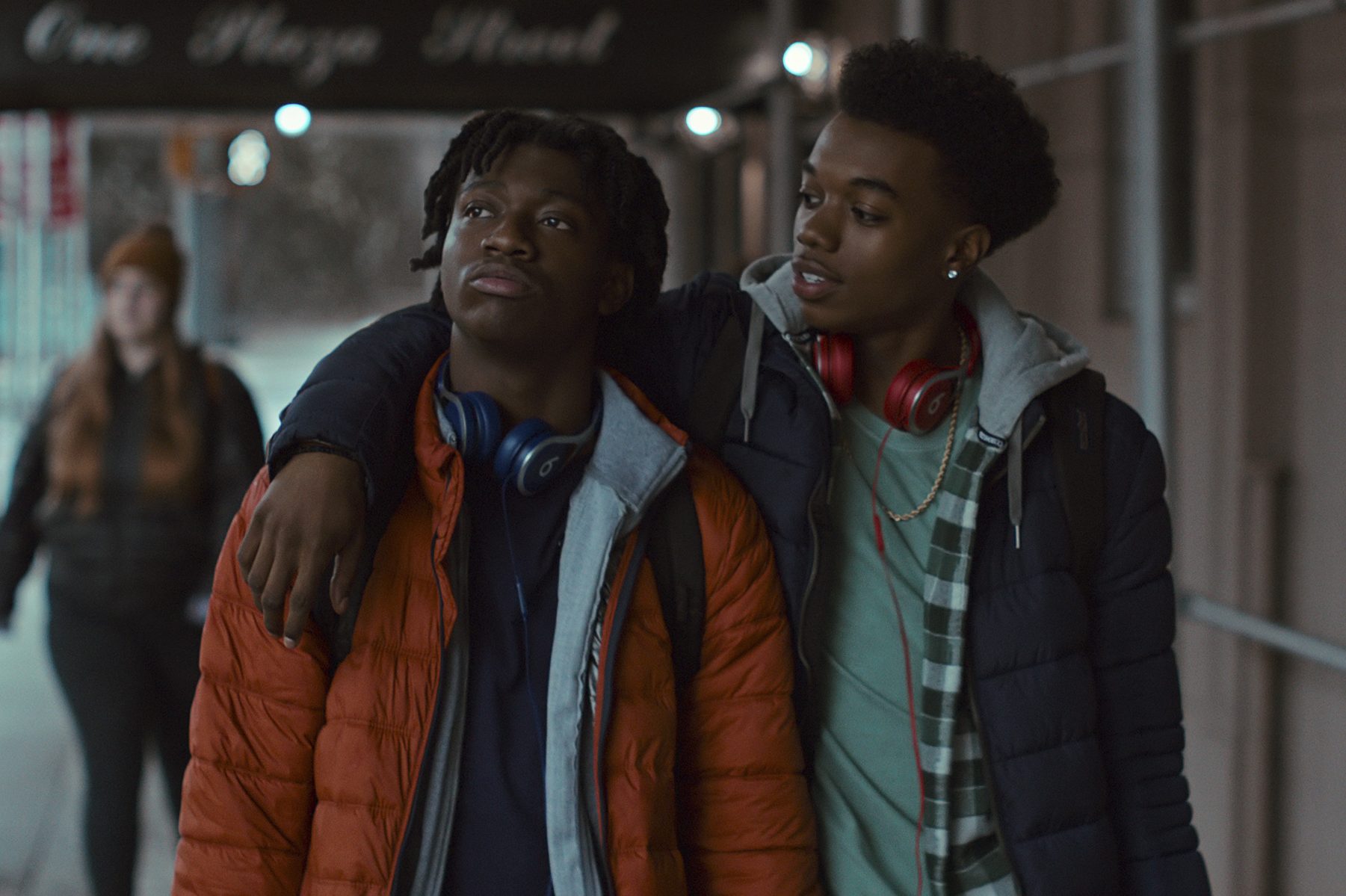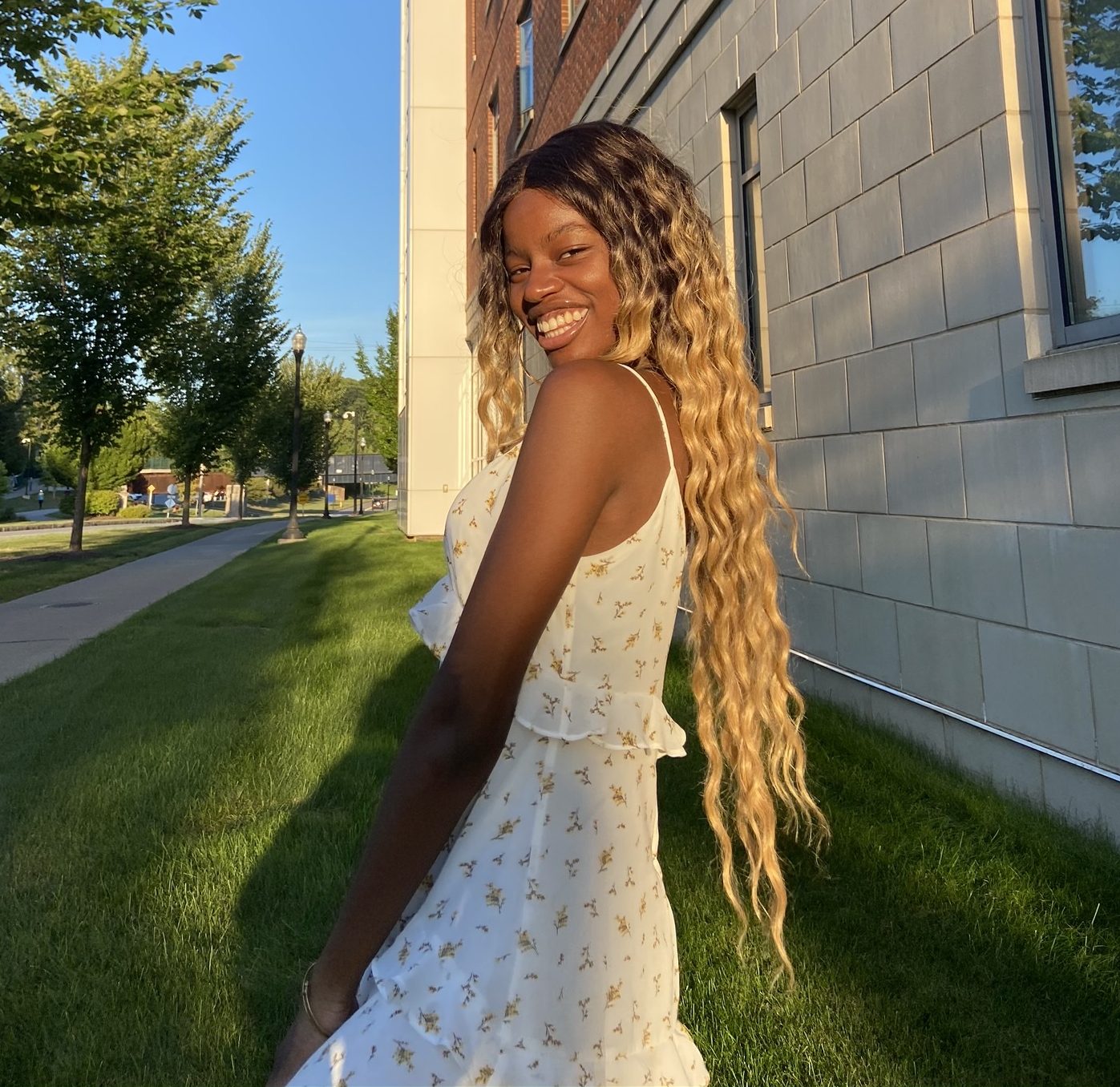“Grand Army” has been on Netflix’s Top 10 for about two weeks now and the hype still hasn’t died down. Set in the center of New York City, it highlights the stories of marginalized teens living in a generation that goes beyond being misunderstood, emphasizing how they live and interact with the world in a raw and realistic way.
Set in Grand Army, a prestigious Brooklyn public high school, the show focuses on five of its students: Leila, Dominique, Jayson, Sid and Joey. The show follows them as they live their lives as they deal with social media pressures, racial tensions, terrorist attacks, sexual assault, poverty and identity. “Grand Army” does not fall short on dealing with heavy-hitting topics (so beware of content warnings), and it definitely does not hold back on portraying complex characters that reflect the diverse and real stories of teens today.
https://www.youtube.com/watch?v=Fb30tUGqaCk
Leila Kwan Zimmer and Your “Unidentified” Teen at Grand Army
Leila is a Chinese American 14-year-old girl adopted into a white, Jewish family who grapples heavily with her identity. At first, we see her as an excited actor auditioning for a play at school, but after the school goes on lockdown during a terrorist attack, another character, Sid, somehow pushes Leila into a newfound popularity that she’s desperate to cling onto because she feels like she has nothing else.
“Grand Army” highlights the lack of support that comes with dealing with your cultural and social identity in high school. It also portrays the lack of support given to parents who adopt immigrant children with cultural identities different from their own, who might want to incorporate the child’s native culture into their upbringing. Leila’s story emphasizes the frustration of having to choose between two identities; she eventually comes to the conclusion that she doesn’t have to choose, but at the price of some very risky decisions.
Despite Leila’s flaws, the actress who plays her, Amalia Yoo, had some insights into the importance of Leila’s story. When one of the students at Grand Army is raped by two of her friends, Leila doesn’t believe the victim; as upsetting and confusing as Leila’s reaction is, her story reflects the fact that this reaction happens all the time, even from the people you would least expect. Amalia Yoo said to Teen Vogue, “You’re trying to figure out what you believe in and fight against the patriarchy, but then something happens and all of a sudden you revert back to a misogynist way of thinking without maybe even realizing that you’re doing that.”
We all grow up within this patriarchal system that teaches us falsehoods about life, but as we grow into ourselves, it’s up to us to unlearn these narratives. However, it can be hard without the proper support. But given the severity of Leila’s call for attention in Episode 9, “Freedom,” how do you prevent these cries for attention on a large scale when you can barely prevent the crippling social and emotional pressure on a small scale? Everyone, no matter the age, goes through an identity crisis at some point and makes questionable decisions, but they should never define you. However, the decisions Leila makes have definitely established who she is as a character in the show and I can’t wait to see what happens to her in Season 2.
Joey Del Marco and Women and Girls Who Continue To Be Silenced
Joey Del Marco (played by Odessa A’zion) starts off the show as a sexually liberated, popular, confident dance queen. But after being raped by her two friends, her story becomes one of a woman dealing with sexual assault. As written by Ariana Romero in Refinery29, Joey’s “best friends escalate a youthful inebriated hookup into an act of unmistakable violence.” Her story is significant because this isn’t the tale of some masked man or unknown predator; it’s the story of alleged friends committing an incredible act of betrayal as well as a blatant violation of mind, body and spirit.
In the end, not only are her friends acquitted due to a lack of evidence, but they also fail to admit their wrongdoing after Joey seeks them out to gain a sense of closure. Compounding this, there is another friend that stood by and watched, who doesn’t speak up until the very end of the investigation — another unfortunate reality of so many sexual assault cases.
The show reflects contemporary sex culture, which isn’t monitored at school or at home; it’s taught through online pornography, which sexualizes physical pleasure separate from emotional connection, and even pain and violence. School systems need to provide better sexual education for young boys in order to protect young girls. And our judicial system needs to listen when women speak up about violence committed against their bodies to stop what’s already happening and, more importantly, prevent it from continuing.
Dominique Pierre and the Cry for Black Girls’ Mental Health That No One Seems To Hear
My favorite character is definitely Dominique. Played by Haitian American actress Odley Jean, Dom is a first-generation daughter of a single Haitian mother, who helps care for her niece and nephew while balancing school, extracurriculars, her social life and an internship. But when her sister gets hurt and can no longer work, Dominique struggles when financial pressures weigh even more heavily on her and her family.
However, Dom’s story is not a sob story and her resilience speaks to the way Black families and families with single parents working minimum-wage jobs have managed to survive. However, the burdens that Dom carries with her into school are things that adults should worry about, not teenagers. In the end, it breaks her down, and the audience sees how important it is to prioritize mental health and therapy for Black youth.
The show contrasts the lives of Black and white students at Grand Army. General socioeconomic disparity puts an even greater pressure on Black and Latinx teens to support themselves when there are few accessible mental health resources and mental health professionals that look like them. But as much as we see the weight of Dominique’s daily struggle, we also see how she pushes through and survives, as so many young teens do. Through her, we also get to see positive young Black love on screen, which is amazing when so many narratives focus on the negatives of these relationships.
Jayson Jackson and Fighting for What You Believe In Despite the Consequences
Maliq Johnson plays Jayson, a young Black saxophone player that has to stand up for his friend — and all the young Black men in school — when his friend Owen is unfairly suspended for a minor offense. Jayson’s story is beautiful because it focuses on the constant internal battle between who he is as a Black man in society, who he wants to be (a professional jazz sax player) and what he believes to be right and wrong.
In the end, he chooses his friend and stands up for what’s right, although the decision is not easy. “Grand Army” explores what it means for young Black men to be suspended from school; the series frequently mentions the school-to-prison pipeline, “a process through which students are pushed out of schools and into prisons [as it] is a process of criminalizing youth that is carried out by disciplinary policies and practices within schools that put students into contact with law enforcement.”
In this case, Owen is suspended for touching another student’s bag, which allowed money from someone’s wallet to be stolen. Joey reports them and by the end of the season, Owen still isn’t back at school. In a Teen Vogue article, Maliq writes, “I suggest for others to take into consideration how punishment could affect disenfranchised people. Consider where that person comes from, consider all the possibilities, and definitely consider the worst possibility because the worst-case scenario usually plays out.”
For young Black men, this emphasis on punishment leads to higher dropout rates, arrests and juvenile detention if you’re underage — or if you’re 17 or older, prison. According to the Justice Policy Institute: “Out-of-school suspensions have increased about 10 percent since 2000. Black students are three times more likely to be suspended or expelled than white students.” In the end, Jayson stands up for all the boys that look like him; after all, he knows it could have been him.
Siddhartha Pakam and Being Treated Like a Villain in Your Own Country and Being Misunderstood at Home.
Siddhartha “Sid” Pakam (played by Amir Badgeria) is an Indian senior who’s struggling to write his personal essay to get into Harvard, all while feeling the effects of being racialized after a suicide bomber attacks nearby.
On top of the pressure that school puts on any student to get into a good college, Sid feels the additional weight endured by the children of American immigrants. Sid’s story explores how children of immigrant parents (just like Dom) feel parental pressure to make something of themselves in America while still feeling like they don’t belong.
Sid also gets outed at school and when he’s forced to come clean to his parents, the audience sees the difficulty of coming out to minority parents who don’t understand “what it means.” It’s an extremely personal story that I found to be so important because the LGBTQ+ stories that we’ve seen (such as “Love, Simon” or its spinoff, “Love, Victor“) have been reasonably positive.
While these positive portrayals are important, Sid’s story shows the way queerness comes with a different weight in families that grew up in a different and not-so-accepting culture. It makes it more difficult to come out to family, and I think Sid’s story truly represents the multifaceted ways coming into your sexual identity can be as liberating as it can be scary when you’re a minority.
The Real World Implications of “Grand Army”
The importance of telling these stories goes beyond giving insight into the lives of marginalized teens; rather, it sheds light on the way external factors affect them in their day-to-day lives. These stories aren’t a cry for help or attention; they’re a call to justice from those living under systems that are not protecting us. It’s an honest look at the way teens are living and surviving today and calls for everyone’s empathy to understand the stories being told. It’s important that “Grand Army” shows these stories because teens are taking on more responsibility, and adult issues are being forced upon teenagers — who are still children — every day. “Grand Army” shows us that the next generation needs to build a better future to prevent even more damage from happening.
















